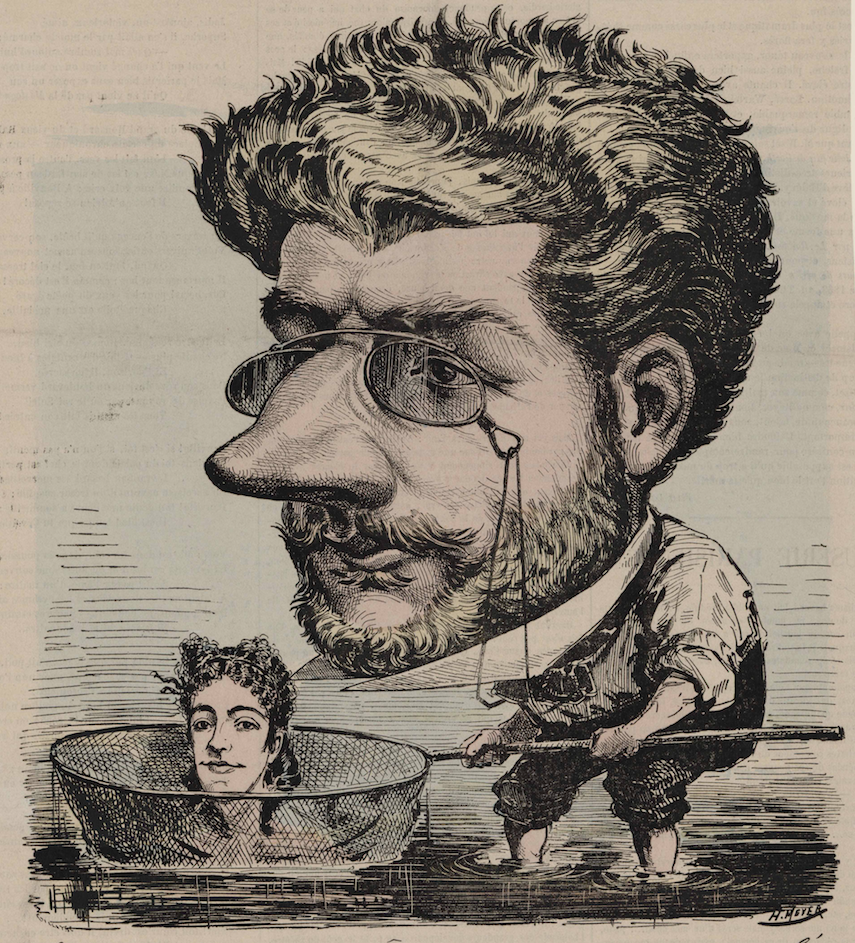Despite the popularity of Carmen, more operas by the French composer have disappeared than are ever performed today.
Bizet was a young man when he decided to write “an Italian farce in the manner of Don Pasquale”. He’d just won the Prix de Rome, moved to Italy and had settled into the bohemian life paid for by the prize.
Thinking that opera might be his future he worked initially on studying and imitating the brilliant, exuberant and virtuosic music from the previous generation of Italian composers. The result was Don Procopio, a full-length comedy about an older man who’s being set-up to marry a younger woman. She’s not a fan of the idea (she wants to marry the tenor) and with the help of her brother and her aunt they foil the plot and drive poor Don Procopio away.
 Caricature of Bizet, 1860
Caricature of Bizet, 1860
The music is unmistakable Bizet, full of dramatic shifts and complex ensembles, and it retains its charm while delivering all the vocal fireworks we’ve come to expect from the period. The composer finds moments of depth and pathos in the fall of Don Procopio, adding colour to the...










Comments
Log in to join the conversation.